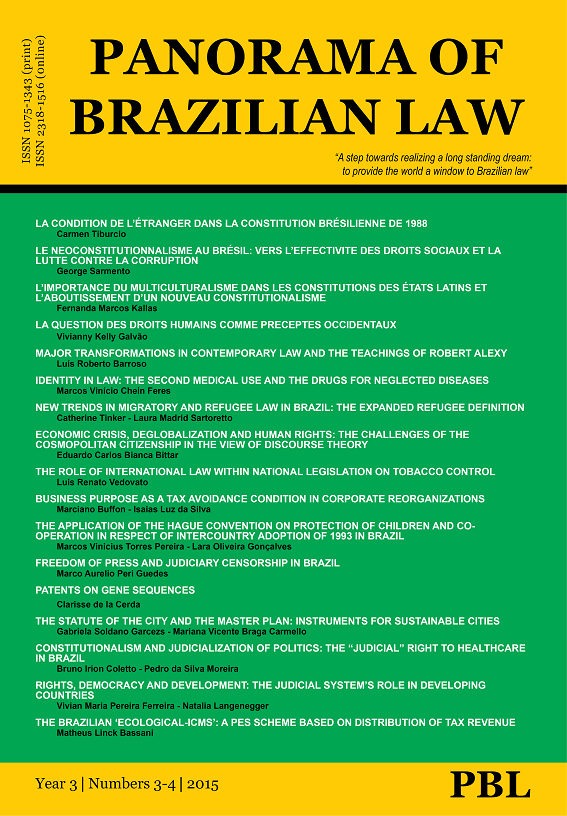RIGHTS, DEMOCRACY AND DEVELOPMENT: THE JUDICIAL SYSTEM’S ROLE IN DEVELOPING COUNTRIES
DOI:
https://doi.org/10.17768/pbl.y3.n3-4.p394-420Περίληψη
This article seeks to discuss whether and how the judicial system has been assuming a new institutional role in the design of public policies aimed at promoting of Economical Social and Cultural Rights (ESCR) in developing countries. Considering that these rights are crucial for human and social development, the article discusses the ways in which the judicial system might interfere with the process of development.Alongside a theoretical debate, the article presents a functionalist comparative study of the public interest litigation in Brazil, India and South Africa. It focuses on how judges seek to promote ESCR as well as on the benefits and problems of their intervention in public policies created by democratic governments and legislatures.The diagnosis that judicial systems around the world play different roles from the ones recommended by the economic neoliberal mainstream shows that several different institutional arrangements are possible and that some of them might be more adequate to the reality of the developing world. Therefore, the article hopes to provide insights to rethink global governance and the current knowledge on law and political economy from a new paradigm.
Λήψεις
Δημοσιευμένα
Πώς να δημιουργήσετε Αναφορές
Τεύχος
Ενότητα
Άδεια
Panorama of Brazilian Law employs Open Journal Access policies.
Authors are fully and exclusively responsible for their submissions.
Authors who publish with this journal agree to the following terms:
- Authors retain copyright and grant the journal right of first publication with the work simultaneously licensed under a Creative Commons Attribution-NonCommercial-ShareAlike 4.0 International License that allows others to share the work on a non-comercial basis with an acknowledgement of the work's authorship and initial publication in this journal and indicating if any changes were made. If you remix, transform, or build upon the material, you must distribute your contributions under the same license as the original.
- Authors are able to enter into separate, additional contractual arrangements for the non-exclusive distribution of the journal's published version of the work (e.g., post it to an institutional repository or publish it in a book), with an acknowledgement of its initial publication in this journal.

